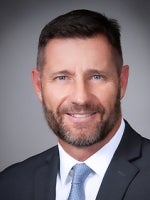In 2015, Continental Casualty Company issued a commercial general liability policy to Zongwei Shen dba Nobles Massage Spa. The policy covered Shen (the spa owner) and Zhong Xin (the spa manager and Shen’s wife) for damages because of bodily injury that occurred during the policy period. The policy contained an abuse or molestation exclusion that excluded coverage for bodily injury “arising out of” (a) the “actual or threatened abuse or molestation by anyone of any person while in the care, custody or control of any insured,” or (b) the negligent employment, supervision, or retention “of a person for whom any insured is or ever was legally responsible and whose conduct would be excluded by (a).”
In 2019, three customers sued Shen and Xin, alleging that Shen sexually assaulted and molested them during massage sessions and that Xin negligently hired, trained, and supervised Shen. After Continental declined to provide a defense, Shen and Xin stipulated to liability and the trial court entered a $6.8 million judgment against Shen and Xin. Shen and Xin subsequently assigned their rights against Continental to the customers in exchange for a covenant not to execute on the judgment. The customers, Shen, and Xin (appellants) then sued Continental for breach of contract and bad faith for its failure to defend Shen and Xin in the underlying action, and the customers sought to recover the judgment pursuant to the assignment and Insurance Code section 11580. Continental moved for summary judgment on the grounds that the abuse or molestation exclusion precluded coverage for all claims against Shen and Xin, and the assaults of two customers occurred after the policy expired. The trial court granted the motion.
The Court of Appeal affirmed. The Court noted that no California case had interpreted “care, custody or control” in the context of an abuse or molestation exclusion. Based on the plain and ordinary meaning of the terms “care” and “control,” the Court held that subsection (a) of the exclusion applied to preclude coverage for the claims against Shen, because the customers were under the “care” and “control” of Shen during the massage sessions. In so holding, the Court rejected the appellants’ argument that the exclusion only applied if Shen had “exclusive or complete control” over the customers during the assaults, relying on McMillin Homes Construction, Inc. v. National Fire & Marine Ins. Co., 35 Cal.App.5th 1042 (2019). The Court distinguished McMillin because the Court there considered the phrase “care, custody or control” in the context of a property damage exclusion, and control, custody, and care of a human being is different from that of physical property.
The Court also held that the abuse or molestation exclusion applied to preclude coverage for the negligent hiring, training, and supervision claims against Xin. The Court reasoned that subsection (a) of the exclusion barred coverage for the claims against Xin, because courts interpret “arising out of” broadly, and the negligent hiring, training, and supervision claims arose out of Shen’s sexual abuse and molestation of the customers. The Court also concluded that subsection (b) precluded coverage for the claims against Xin, because they were based on Xin’s employment or supervision of Shen. The Court rejected the appellants’ argument that subsection (b) did not apply to the claims against Xin, because “training” was not expressly excluded. The Court stated that the exclusion need not use the word “training,” because negligent employment and supervision encompassed training.



 />i
/>i

